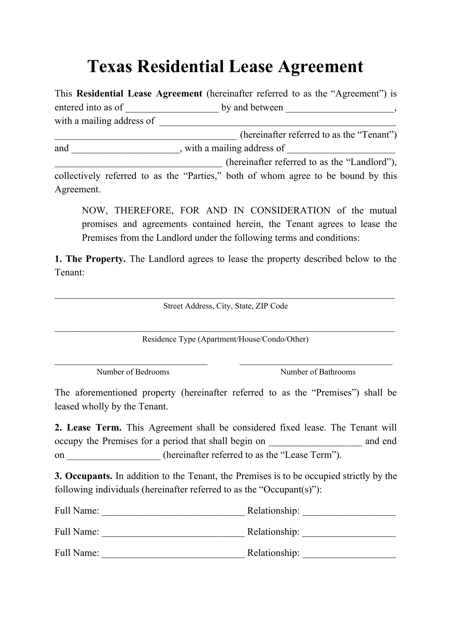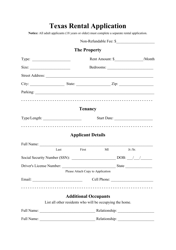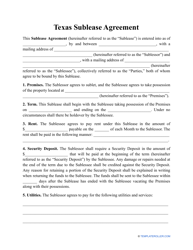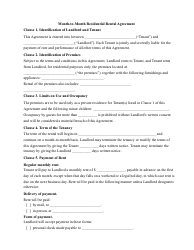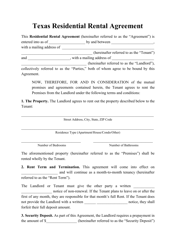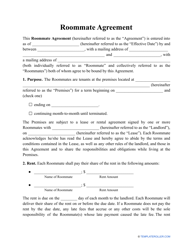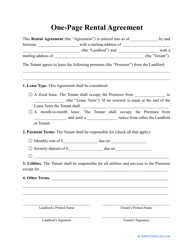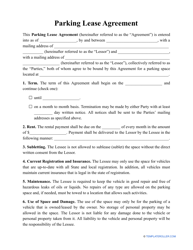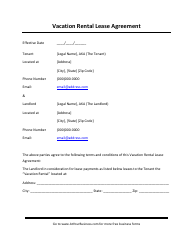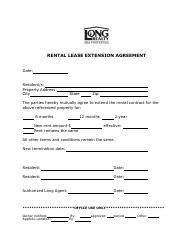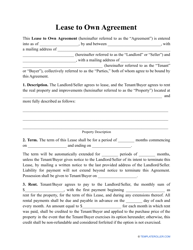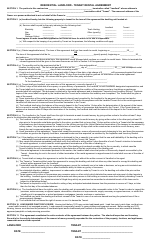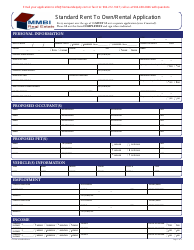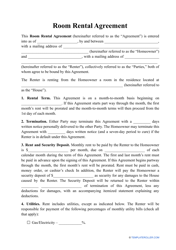Residential Lease Agreement Template - Texas
A Residential Lease Agreement Template - Texas is a document used for renting a residential property in the state of Texas. It outlines the terms and conditions of the lease agreement between the landlord and tenant, including rent amount, lease duration, and other relevant provisions.
The residential lease agreement template in Texas is typically filed by the landlord or property owner.
FAQ
Q: What is a residential lease agreement?
A: A residential lease agreement is a legal document that outlines the terms and conditions for renting a residential property, such as an apartment or house.
Q: Why is a residential lease agreement important?
A: A residential lease agreement is important because it helps protect the rights and responsibilities of both the landlord and the tenant. It ensures that both parties understand their obligations and can help prevent disputes.
Q: What should be included in a residential lease agreement?
A: A residential lease agreement should include details such as the names of the landlord and tenant, the property address, the duration of the lease, the rent amount and due date, the security deposit amount, and any restrictions or rules related to the property.
Q: Can a residential lease agreement be modified?
A: Yes, a residential lease agreement can be modified, but any changes should be agreed upon and documented in writing by both the landlord and the tenant. It's important to clarify and update the terms in a timely manner.
Q: What happens if there is a breach of the residential lease agreement?
A: If there is a breach of a residential lease agreement, the party affected by the breach may have legal remedies, such as the ability to terminate the lease or seek compensation for damages. It's advisable to consult with an attorney if faced with a breach of lease.
Q: Is a written residential lease agreement required in Texas?
A: While a written residential lease agreement is not required in Texas, it is highly recommended for both the landlord's and the tenant's protection. It helps avoid misunderstandings and provides a clear reference point for both parties.
Q: Can a landlord evict a tenant without a residential lease agreement?
A: Yes, a landlord can evict a tenant without a residential lease agreement, but the process may be more complicated. Texas law provides certain protections for tenants, even without a written lease, so it's important for landlords to carefully follow the legal procedures for eviction.
Q: What are some common terms in a residential lease agreement?
A: Common terms in a residential lease agreement include the duration of the lease, the rent amount and due date, the security deposit amount and conditions for its return, pet policies, maintenance responsibilities, and rules regarding utilities, noise, and parking.
Q: Can a landlord increase the rent during the lease term?
A: In general, a landlord cannot increase the rent during the lease term unless specified in the lease agreement. However, rent increases may be allowed at the end of the lease term or if both parties agree to modify the lease agreement.
Q: Can a tenant break a residential lease agreement in Texas?
A: In most cases, a tenant can break a residential lease agreement in Texas if certain conditions are met, such as military deployment, documented instances of domestic violence, or if the property becomes uninhabitable due to major repairs or maintenance issues.
